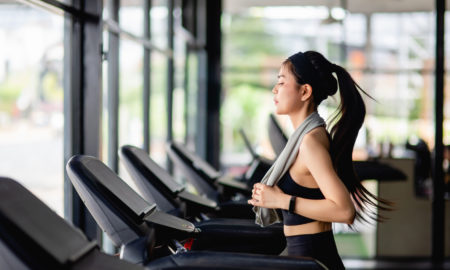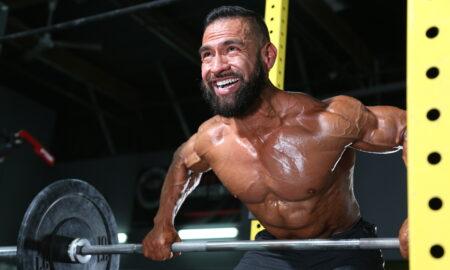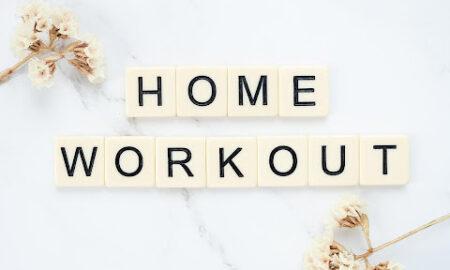

Solo workouts are great for many things. Unfortunately, you miss out on some of the essential benefits when working out alone. Working out alone can feel isolating and unmotivating. According to a survey of over 3,000 men, almost 40 percent of solo gym-goers report feeling lonely while working out. That’s where the benefits of a gym buddy come in. Having a gym partner or team that you can count on helps you stay motivated, focused, and accountable for your fitness goals.
Your gym buddy or partner can be your friend or a family member that works out at similar hours and can give you that extra push during your workouts. If you are ever working out alone, you’re missing out on several benefits of having a gym partner. Check out why it’s crucial to have a friend to work out with, the types of workouts to do with your partner, and when to ditch them in this article.
Benefits of A Gym Partner or Friend
Training with a gym partner can make you fit faster, more muscular, and more committed. However, not anyone can be your gym partner. Look for:
- Gym partner who is focused on their fitness goals as much as you are.
- Gym partner or friend who has the same fitness level as you or is willing to work with your fitness level
- Gym partner who will motivate and push you when it comes time for that extra workout or those difficult exercises.
- Look for a gym partner who consistently comes for workouts and comes early. It shows they value your fitness goal.
How You Will Benefit from a Gym Partner
- You’ll Have Accountability to Your Gym Partner
When you work out with a friend, you are more likely to stick with your plan and show up for each exercise session than those who go it alone. Simply knowing that someone is waiting for you at the gym will give you the extra push to keep going even if your motivation is low. They’ll be there to remind you of that when you want to make excuses not to accomplish your fitness goal.
- A Gym Partner Will Motivate and Inspire You to Do Better
It’s hard to motivate and inspire yourself, but having a gym partner around can help keep your spirits up when things get tough, or things don’t work out as fast as possible (intended). A workout partner can also help push you to go further than you would have on your own and help keep track of your progress and help you find ways to improve your fitness. - Gym Partner Gives You Competition
When you work out with a partner, you compete with each other. Healthy competition helps push you further than what you can do on your own. It doesn’t have to be a one-on-one challenge all the time, but now and then, doing an endurance battle can help you see your weakest link and how to improve it. You’re more likely to win if you don’t give up!

- Gym Partner Makes Workout More Effective.
Like having a personal trainer, having a gym friend will help make your workout as efficient as possible. Both of you will be able to give each other advice about different exercises and routines that are effective for either one of you. - You’ll Push Yourself Harder When You Have a Gym Partner
Sometimes, a partner will push you too hard, which isn’t always good. But having a friend there who is willing to push you is better than doing the workout yourself. You might start by saying, “I can’t,” but your gym partner will say, “yes, you can!” and then you’ll be able to do it. For instance, a partner may push you to work out longer and more intensely. They’ll even encourage you to try strenuous exercises that generally make you want to quit early! - You’ll Have Consistency
Having someone to be accountable for keeps your workouts consistent. Whenever you know that somebody is waiting for you at the gym, it is much harder to skip a workout — or even be late! You are less likely to skip a workout when you know it will affect your progress and friends. If it’s up to you, sometimes you make excuses not to go, but if you know someone depends on you, those excuses disappear, and you will constantly train, leading to fitness achievement.
Types of Motivation That Makes You Go to the Gym
Apart from getting gym motivation from a partner or friend, other reasons can motivate you. That brings us to the types of motivations that can make you sweat on the treadmill or lift weights at the gym. That brings us to the two types of motivations below.
1. Intrinsic Motivation
Intrinsic motivation is when you want to do something for personal reasons instead of wanting to please someone else. It comes from within and is generally long-lasting, making it a good motivator for staying active regularly. Intrinsic motivators are things like wanting to get fit, losing weight, or just being healthier. You may also be intrinsically motivated to go to the gym if you:
- Feel energized or proud of yourself after exercising
- Like socializing with others at the gym (e.g., friends, family, or a personal trainer)
- Have an interest in your chosen form of exercise (e.g., cycling, climbing)
- Feel that being active makes you healthier or happier
2. Extrinsic Motivation
Extrinsic motivation comes from outside of yourself and often takes the form of rewards or punishments. This type of motivation can be effective in the short term, but it’s not as useful for maintaining physical activity or fitness over the long term.
For example, you may be extrinsically motivated to go to the gym if you know you’ll get a raise or bonus if you exercise regularly because your employer offers incentives related to health programs.
Workout You Can Do with A partner or A friend at the Gym
Working out with a friend, a team, or a partner can be more motivating and enjoyable. You can push each other to go the extra mile. Some workouts that are perfect for friends or partners are:
Friend Squats
Find an open space where you can move around freely, such as an empty room in the gym. Then get into position and squat down when your partner says, “go!”. Once you have completed one squat, do another right after saying “go!” again. Continue squatting until one of you falls over.
Partner Plank
You will start in a plank position and your partner will put a medicine ball or basketball between your feet. Your goal is to keep the ball in place by squeezing your glutes. Your partner will then push the ball left and right, with you resisting the force. Do this for 60 seconds and switch with your partner.
Partner Squat Jumps With Medicine Ball Toss
Stand in front of your partner with your feet shoulder-width apart. Hold the medicine ball in front of you and squat down as low as possible while your partner stands behind you, holding his arms out straight to catch the ball. As you stand up out of the squat, toss the ball to your partner and repeat the movement.
You can make the exercise more challenging by adding weight to the jumps.
Friend Sit-Up Pass
Lie on your back with your knees bent and feet flat on the floor. Your partner should lie in front of you in the same position. Raise your upper body to sit up, keeping your shoulders down and back straight. From this position, pass a medicine ball back and forth between you. Do as many reps as you can for one minute, then switch positions so that your partner does the same number of reps from behind you.
Partner Triceps Dip
Sit on the floor with your legs straight in front of you and your hands behind your hips, fingers facing forward, and palms on the floor. Lift your hips off the ground and bend at the elbows until your forearms are parallel to the ground, then extend back to start.
When to Ditch Your Gym Partner
Having a gym partner can increase motivation, accountability, fitness level, and commitment to your health, but sometimes it’s more harmful than helpful. If you notice any of these signs with your partner or team, it might be time to break up with them.
Your Gym Partner is a Distraction.
Friends talk, and that is normal. However, if your partner or team spends more time talking during workouts than working out, it may be time to change a gym partner.
The Gym Partner is Too Competitive
A little healthy competition is fine, but it’s time to end things if your partner constantly tries to one-up you during workouts. You don’t have to match their pace, lift as much weight as they do, or run as far as them. If you feel like you have something to prove every time you workout together, it’s time to call it quits with this person.
The Partner or Team is Flaky
Fitness is about consistency and committing yourself to your workouts each week. If your partner doesn’t show up, cancels on you at the last minute, or constantly keeps you waiting at the gym, it’s time to find someone who values your fitness goals and is ready to benefit from each other.
The Gym Partner Does Not Push You
If your workout partner isn’t challenging you, you may not be getting the most out of your exercise routine. What’s more, a recent study showed that working out with someone faster than you can increase your intensity and performance during a workout session. Ditch them if they are not pushing you to improve.
The Gym Partner Has Different Goals.
If your goal is to lose weight, but your partner’s goal is to build muscle, you will be using completely different strategies to accomplish your fitness goals. The differences can cause frustration and resentment between you because no one will want to do specific exercises not meant for their goal.
The Gym Partner is Negative.
Your workouts shouldn’t be miserable. When your gym partner always complains or tells you how strenuous this next exercise will be, you will not benefit from that workout. You should be able to enjoy each other’s company, not dread spending time together. Ditch that partner before he makes you fail on your fitness journey.
Your Gym Partner is Better Than You (and it’s not fun)
When your partner is more fit or skilled than you, they can help push you to new levels. But if you constantly struggle to keep up with them and fall short of their ability level, that can be discouraging, and you will not benefit from that training. Instead, ditch your partner and find a new one.
 Bottomline
Bottomline
Having a gym partner is critical for holding you accountable. Your partner will not only keep you from skipping workouts but motivate you to work harder. It’s easy to give up when no one else is around, so make sure you have a friend or team to help keep that from happening in your next session.






















You must be logged in to post a comment Login